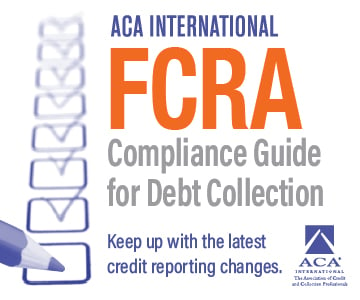 The bureau is proposing a registry of regulated entities with local, state or federal regulatory or court orders to identify and mitigate risks, when those processes are already in place.
The bureau is proposing a registry of regulated entities with local, state or federal regulatory or court orders to identify and mitigate risks, when those processes are already in place.
12/14/2022 11:40 A.M.
3 minute read
The Consumer Financial Protection Bureau has added a proposed rule to its list for 2022 that would require certain nonbank covered entities, including debt collectors, to register with the bureau “when they become subject to certain local, state, or federal consumer protection agency or court orders.”
As part of the rule, the CFPB is proposing to publish the orders and company information on an online registry and certain registration information about companies on the bureau’s public-facing website, according to a news release.
Larger regulated companies subject to the CFPB’s supervisory authority would be required to have a “senior executive” submit a yearly written statement on the processes to oversee activity in a court or regulatory order and their knowledge of violations or noncompliance with the stipulations of the order.
“The CFPB’s proposed rule would help the agency identify and mitigate risks to American households and ensure that supervised companies perform their obligations to consumers,” according to the news release.
ACA’s Take
Establishing a public registry and requiring regulated entities to register if they are subject to a court or other regulatory order, including at the state level, is duplicative.
Courts and other financial regulators at the federal and state level have their own processes for enforcement actions as does the bureau through its supervisory highlights report, supervisory examinations, court filings and news releases.
The CFPB’s goal appears to be to name and shame companies, which will stymie negotiations and self-reporting to regulators.
According to the CFPB, “the repository will allow the CFPB to track and mitigate the risks posed by repeat offenders, while also being able to monitor all lawbreakers subject to agency and court orders.”
The CFPB will collect public input to inform revisions to the regulation text. The deadline for submitting comments is 60 days after publication in the Federal Register.
ACA has previously raised concerns about the bureau’s interpretive rules and advisory opinions, noting coordination with state attorneys general should be fair and reasonable, for example.
This spring, the CFPB issued an interpretative rule “to provide further clarity regarding the scope of state enforcement.” According to the interpretive rule, Section 1042 of the Consumer Financial Protection Act (CFPA) allows the CFPB to authorize state attorneys general to independently enforce federal consumer financial laws, regulations and bureau consent orders. The message the CFPB has clearly been sending, and actions it has taken, have resulted in numerous instances of duplicative actions from the bureau and state attorneys general, ACA noted in letters to the House Financial Services Committee and Senate Committee on Banking, Housing and Urban Affairs in advance of hearings with CFPB Director Rohit Chopra this week.
Members of Congress recently pointed out that, “It is clear that state attorneys general may enforce the CFPA in cases where the CFPB has not. But the statute does not allow for a state attorney general to become a party to an existing CFPB enforcement action. It is therefore inappropriate for the CFPB to recruit a state attorney general that is not otherwise investigating a company, to pursue enforcement as a means of intimidation.”
When bad actors are engaging in abusive behavior, ACA supports targeted efforts to eliminate illegal activity. However, seeking to intimidate or increase burdens on legitimate businesses by engaging in rulemaking and advisory opinions that duplicate states’ actions is not a productive use of anyone’s resources. When businesses are spending time dealing with duplicative supervision or enforcement actions, they are not innovating and focusing on solving consumers’ problems. Congress created the CFPB to protect consumers, not to rally states to work in concert with them to target certain disfavored industries or businesses.
If you have executive leadership updates or other member news to share with ACA, contact our communications department at [email protected]. View our publications page for more information and our news submission guidelines here.














